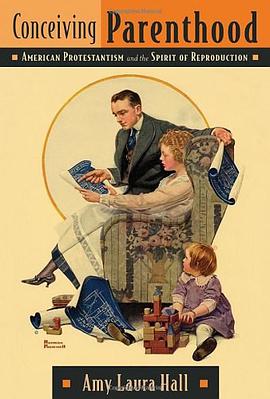

具體描述
Genetic manipulation. Designer babies. Prenatal screening. The genomic revolution. Cutting-edge issues in reproductive bioethics grab our attention almost daily, prompting strong responses from various sides. As science advances and comes ever closer to ?perfect? procreation and ?perfectible? babies, controversy has become a constant in bioethical discussion. Amy Laura Hall, a self-described pro-life feminist, seeks out the genesis of such issues rather than trying to divine their future. Her disturbing finding is that mainline Protestantism is complicit in the history and development of reproductive biotechnology. Through analysis of nearly 150 images of the family in the mainstream media in the twentieth century, Hall argues that, by downplaying the gratuity of grace, middle-class Protestants, with American culture at large, have implicitly endorsed the idea of justification through responsibly planned procreation. A tradition that should have welcomed all persons equally has instead fostered a culture of ?carefully delineated, racially encoded domesticity.? The research in Conceiving Parenthood is new, the theory provocative, and the illustrations exceptional. The book is replete with photos and advertisements from popular magazines from the 1930s through the 1950s ? Parents?, Ladies? Home Journal, National Geographic, and so on. Hall's analysis of these ads is startling. Her goal, however, is not simply to startle readers but to encourage new conversations within communities of faith ? conversations enabling individuals, couples, congregations, even entire neighborhoods to conceive of parenthood in ways that make room for families and children who are deemed to be outsidethe proper purview of the right sorts of families.
著者簡介
圖書目錄
讀後感
評分
評分
評分
評分
用戶評價
相關圖書
本站所有內容均為互聯網搜索引擎提供的公開搜索信息,本站不存儲任何數據與內容,任何內容與數據均與本站無關,如有需要請聯繫相關搜索引擎包括但不限於百度,google,bing,sogou 等
© 2025 book.quotespace.org All Rights Reserved. 小美書屋 版权所有




















